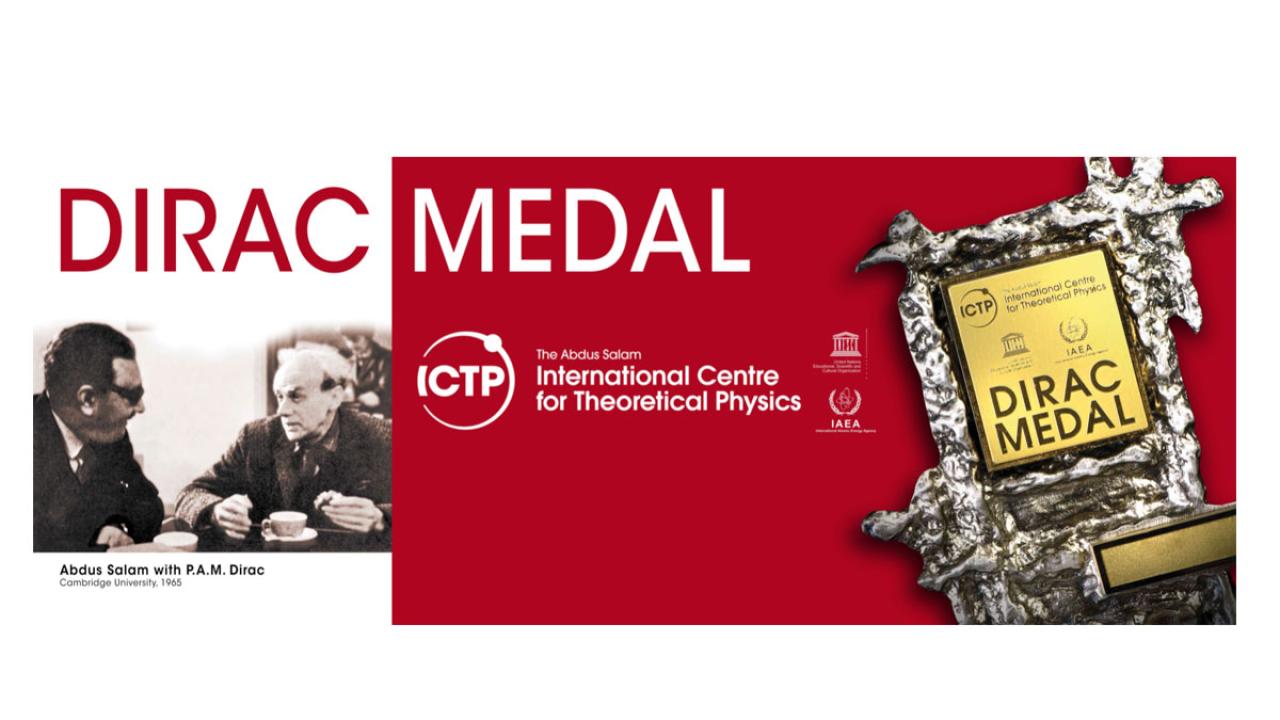
ICTP has awarded its 2017 Dirac Medal and Prize to Charles H. Bennett (IBM T. J. Watson Research Center), David Deutsch (University of Oxford) and Peter W. Shor (Massachusetts Institute of Technology) for their pioneering work in applying the fundamental concepts of quantum mechanics to basic problems in computation and communication, thereby bringing together the fields of quantum mechanics, computer science and information, creating the field of quantum information science.
“ICTP’s 2017 Dirac Medallists have applied their deep knowledge of quantum theory to computation and communication,” says ICTP Director Fernando Quevedo, adding, “Indeed, their work formed the foundation on which the development of quantum information science has been built.”
Today, quantum information science is a large and intense field of research, both theoretical and experimental. It relies on the remarkable ways that quantum mechanics differs from the classical mechanics that describes much of our everyday world. Conventional information science involves data in the form of bits, each of which must have a definite value of zero or one. Quantum information science uses the quantum bit, or qubit, which may exist in a quantum superposition that includes values of zero and one simultaneously. Superpositions of two or more qubits may exhibit a further property called entanglement, in which the qubits' values are correlated in ways that defy classical intuition. The three medallists for 2017 each made key contributions in uncovering how the uniquely quantum characteristics of qubits may be exploited to process and transmit data, thus launching the field of quantum information science.
Charles Bennett is an intellectual leader in quantum information science. Four decades ago, he independently invented and carefully analyzed what is now known as reversible classical computation, proving that classical computation can in principle be performed without consumption of energy. In some respects, reversible classical computation is a forerunner of quantum computation, which necessarily involves reversibility and must minimize stray dissipation. With Gilles Brassard (University of Montreal), Bennett invented quantum cryptography, where two distant parties share a secret encryption key, with security from eavesdroppers guaranteed by the basic quantum limitations on measurements of incompatible observables. Bennett and collaborators also introduced quantum teleportation, whereby entanglement and classical signals are used to transfer quantum states. He and coworkers proved that a quantity called the von Neumann entropy is the proper measure of entanglement for pure systems, an early result in the quantification of entanglement, which continues to be an active area of research.
David Deutsch is one of the founding fathers of quantum computing. He introduced the notion of a quantum Turing machine that would operate on arbitrary superpositions of states (that is, on qubits), the concept of the quantum logic gate and quantum circuit, as well as the network model of quantum computations. He showed that all possible operations on a quantum computer could be generated by combining sequences of a single kind of three-qubit logic gate. (Later, Bennett, Shor and coworkers showed that sequences of one-qubit gates and one simple type of reversible classical two-bit gates sufficed.) Working alone and with Richard Jozsa (University of Cambridge), Deutsch proposed the first quantum algorithms, known as the Deutsch and the Deutsch-Jozsa algorithms, showing that quantum computation could solve certain problems faster than any known classical computer algorithm.
Peter Shor boosted the field of quantum computation by designing efficient quantum algorithms for factoring large numbers and computing discrete logarithms, each of which can be used to break classical encryption schemes. He thus proved that a quantum computer could solve a useful, hard computational problem exponentially faster than any known classical computer algorithm. Shor also introduced quantum error-correcting codes and fault-tolerant quantum computation, which are schemes for coping with the effects of stray interactions (noise) disturbing qubits. Without robust quantum error correction, large-scale quantum computation could be stymied by the extreme sensitivity of quantum states to noise. Instead, the theory of quantum error correction is now a well-established branch of quantum information science, and the difficult path to developing large-scale quantum computers appears open.
ICTP's Dirac Medal, first awarded in 1985, is given in honor of P.A.M. Dirac, one of the greatest physicists of the 20th century and a staunch friend of the Centre. It is awarded annually on Dirac's birthday, 8 August, to scientists who have made significant contributions to theoretical physics. An award ceremony, during which the three winners will present lectures on their work, will take place later this year. For more details about the prize and a list of past winners, visit the Dirac Medal web page.
















